Teens increased caffeine consumption brings concern

After playing in the boys soccer quarterfinal game on Oct. 25, senior Rayce Johnson and junior Nick Purdie finish off the game and celebrate their win with a Nos energy drink.
November 12, 2018
Young adults are experiencing health drawbacks of consuming caffeine daily starting at such a young age. This generation especially is turning to caffeine to resolve stress and exhaustion. Students are also using caffeine to improve their athletic performances. Adults are becoming increasingly concerned with kids relying on caffeine because of recent studies.
Although students do not see the bad effects of caffeine right after consumption, they are not aware of how it is going to affect their future health. There are also many short-term effects that come along with many energy drinks.
“Having proper nutrition, good sleep and just a good diet is really important, and when you fill it with drinks that have empty calories or extra caffeine, it can increase anxiety and decrease sleep which is not good for your overall health,” said Doctor Andrea Saterbak.
Drinking caffeinated drinks at a young age can be very harmful to teens mental and physical health, and they do not know it. For example, caffeine stunts children growth.
“Caffeine may stunt children’s development. A study in PLOS One found that young rats who consumed the rat-sized equivalent of the caffeine in three or four cups of coffee experienced reduced deep sleep and delayed brain development,” said Amy Morin, a writer for Verywell Health.
Athletes often look to caffeinated beverages to improve their performance. On occasion, the boy’s varsity soccer team drinks a Nos energy drink before games. This tradition is referred to by the team as “Nos seas.”
Some people are just more sensitive to caffeine then others and just a small amount may produce unwanted effects, the most common include insomnia, restlessness, fast heartbeat, nervousness, muscle tremors and an upset stomach.
— Amy Morin
“I don’t think it actually helps us perform better, I think [drinking Nos drinks] mentally gets us ready for the game and its a way of celebrating game day,” said junior Nick Purdie.
Students are drinking caffeine due to stress from overwhelming schedules with no time to catch up. A full day at school, extracurricular activities and homework lead to teens staying up late and turning to caffeine in the morning.
“I started drinking Kickstarts my sophomore year,” said junior Andrew Langenberger. After discussing what it would be like not drinking one for a day, he said, “I feel like if I did not drink one, I would be less energetic and I would just lay around all day.”
Short-term effects from caffeine are also very prevalent in teens including a racing heartbeat and sometimes a stomach ache.
According to Morin, “Some people are just more sensitive to caffeine then others and just a small amount may produce unwanted effects, the most common include insomnia, restlessness, fast heartbeat, nervousness, muscle tremors and an upset stomach.”
Although teens get stressed out, there is another solution besides energy drinks. Instead of drinking an energy drink, teens need to manage their time better and eat healthier foods so their body can create its own energy. Teens should not allow themselves to become dependent on an unhealthy drink that causes their body to be even more stressed out. Instead, they need to choose the healthy route before they start to see the short term and long term effects of caffeine.




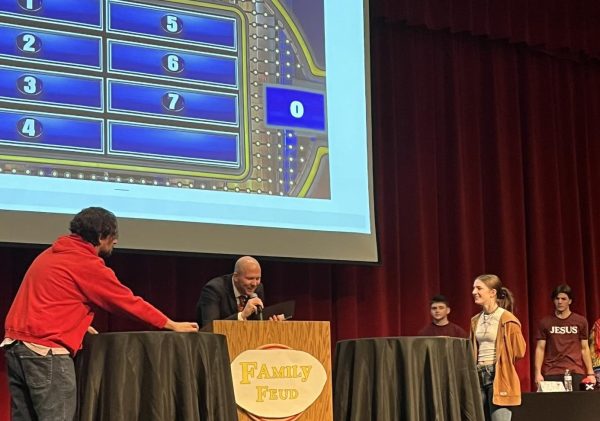
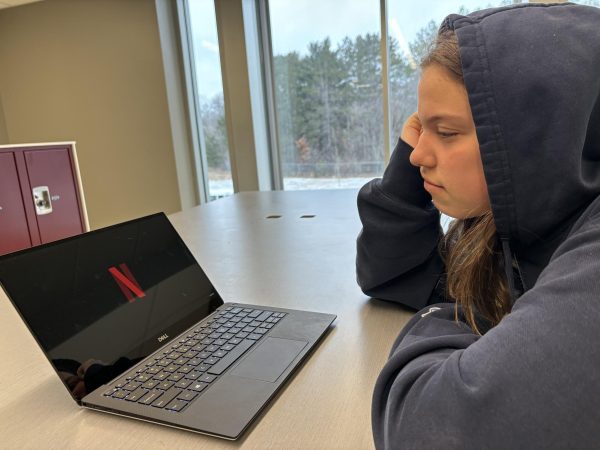
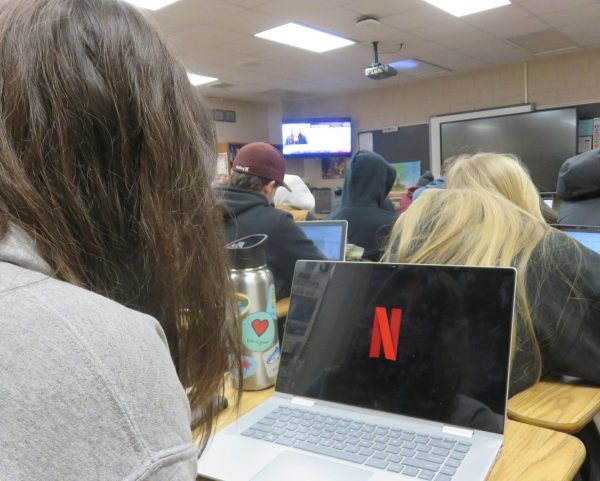
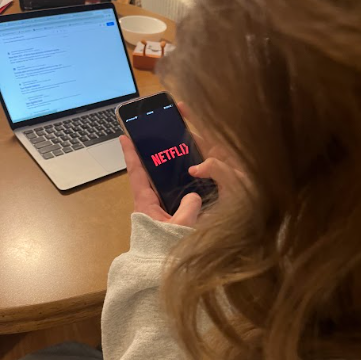
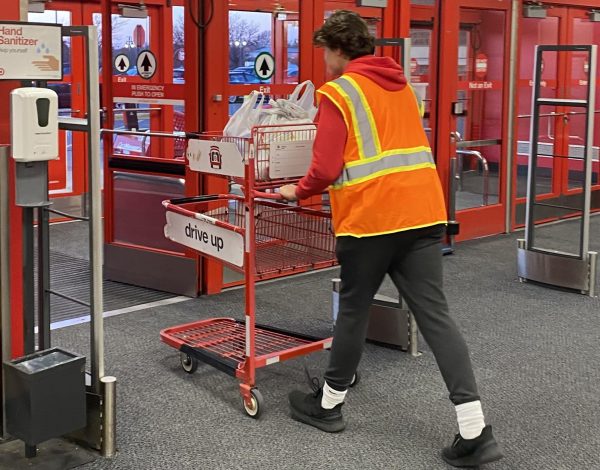
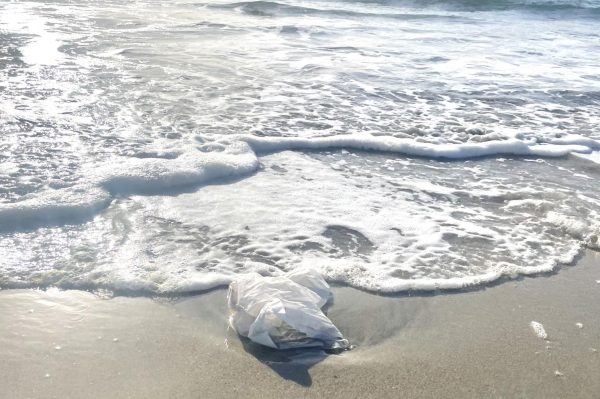

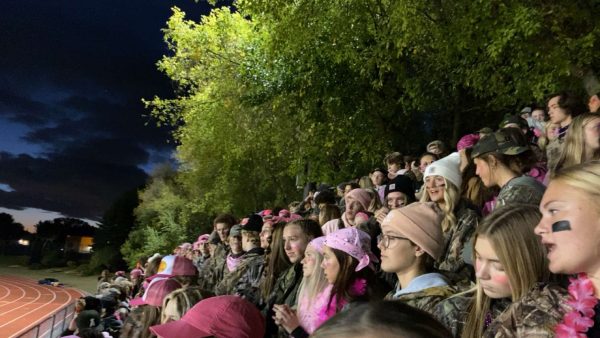
Benjamin Stafne • Jan 16, 2019 at 2:29 pm
This is a great example about the effects caffeine has on teens everyday life. This honestly describes me in some ways and its really eye opening that I need to change my ways and not drink as much caffeine anymore. There is a lot of facts in this article that shows that schools are harder than ever and the increase of mental health issues. if the schools lay back on the amount of stress they lay on students, I feel like the amount of caffeine consumed will decrease. I can tell you really put a lot of time into this article and it is very well written.
Grant Erickson • Jan 4, 2019 at 8:02 am
Very factual. The article does a good job of both conveying the risks associated with caffeine, and why it’s prevalent. The quotes appear to be from qualified people and go relatively in-depth.
emma urban • Jan 3, 2019 at 10:08 pm
I thought you wrote this article really well and I liked how many sources you used. Your story was very organized and easy to understand. The facts you used were very interesting and were a good way to keep the reader interested in the story.
Emma urban • Jan 3, 2019 at 8:50 pm
I thought you wrote this article really well and I liked how many sources you used. Your story as very organized and was easy to understand. The facts you used were very interesting and were a good way to keep the reader interested in the story.
Nathaniel Willius • Jan 3, 2019 at 7:15 pm
The amount of sources give the article a lot of credibility, making it clear that this is a real problem. It also is well written, and has a good flow. Bringing up the short and long term effects also lets students know it is a problem for them now and in the future. Nice article!
Carina Block • Jan 3, 2019 at 6:27 pm
This is a very well written article that focuses on not only the importance of kids at our high school over-consuming caffeine but also teenagers around the country. Way to use multiple expert sources and a consistent fact-quote format!
Dylan Stormoen • Jan 3, 2019 at 9:11 am
I like how the author uses multiple “experts” for sources and not just students or teachers. I think the article is well written and beneficial for students to read who do not know the affects of caffeine. I also like how the author described caffeine as a drug, because many do not recognize that. I also think that the organization of fact-quote, fact-quote is well done.
Elsa Persson • Jan 3, 2019 at 8:10 am
This article is very well rooted in fact and research. It’s clear you put a lot of time and paid attention to detail in this piece. Through the quotes and the fact paragraphs, the theme of caffeine’s negative impact on students’ health is clearly conveyed. Great article!
Juila Bennett • Jan 2, 2019 at 10:55 pm
I really liked how the article included perspectives from teenagers and a doctor. The quotes really added to the story as well. The fact paragraphs were well written and beneficial to the reader’s understanding. Great article Marie!
Julia Bennett • Jan 2, 2019 at 10:53 pm
I really like how the article showed perspectives from kids and doctors who know the true affects of caffeine. The quotes used fit well into the writing and helped get the point across. Fact paragraphs are great! I think Marie wrote a very thoughtout and good article.
Issy Boegel • Jan 2, 2019 at 8:30 am
This article is very well-written and thought out. I like how the intro leads into the nutgraph. I like how the author included different grades of players on the soccer team and provided real life examples.
Elle Sprenger • Dec 21, 2018 at 9:14 am
I really like how there was variety of sources including students who are drinking caffeine and a doctor knows the bad affects of caffeine. I also like the use of a secondary source. This article was related to Stillwater but also can go beyond the highschool.
Cady Solberg • Dec 21, 2018 at 9:09 am
Well written. I like how it addresses the topic of caffeine consumption in young adults and how it is still a drug. The layout of fact than quote is very good. This article is very good for someone to read who doesn’t know the real affects of all that caffeine consumption.
Elli Swanson • Dec 21, 2018 at 8:31 am
The writing in this article is well thought out and very detail filled. The quotes are beneficial to people reading the article by providing useful information to curious readers. The layout in this article was very well done.